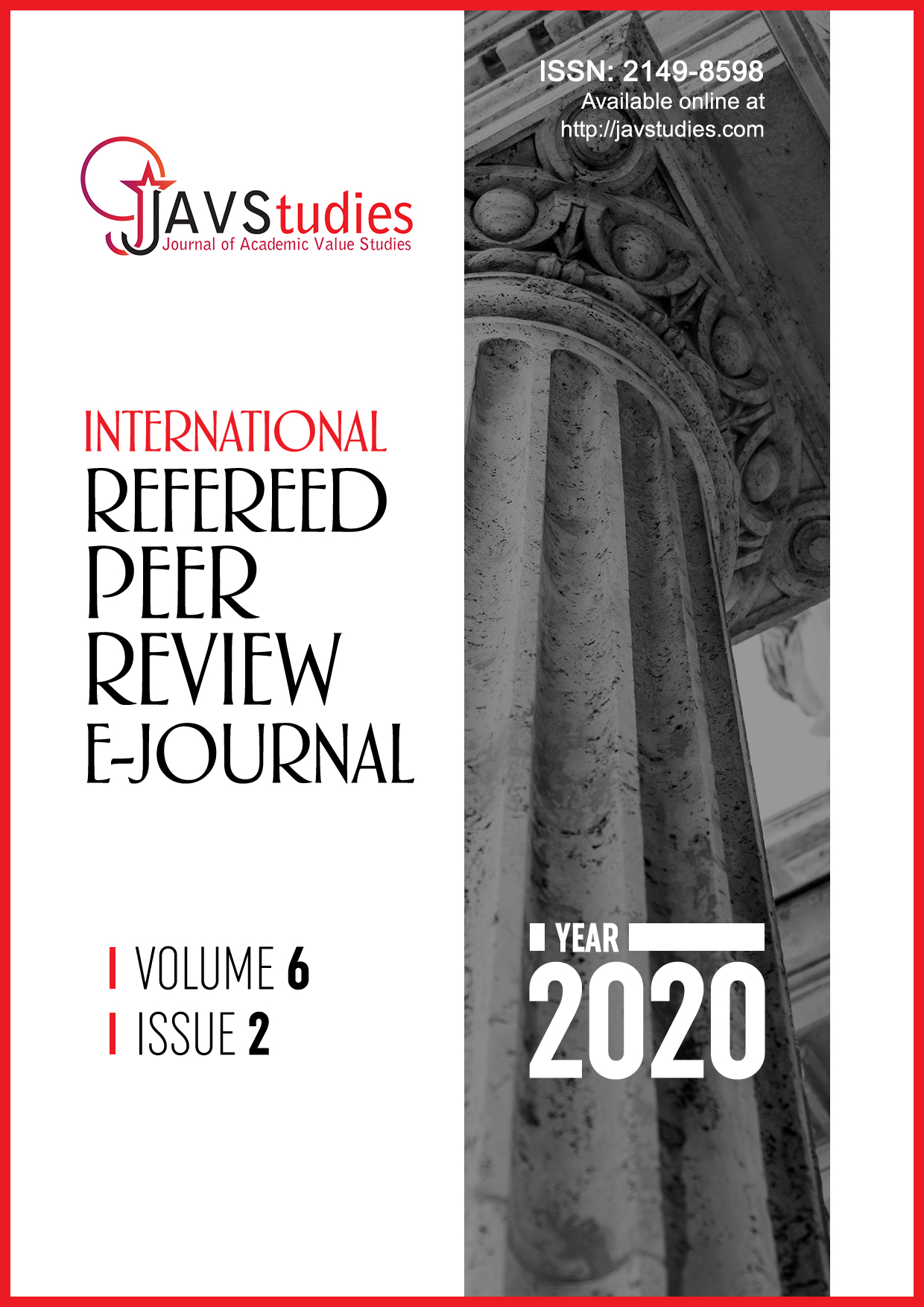Author :
Abstract
Economic growth is very important for open economies. In the structural change process brought by globalization and technology, the entrepreneurship is vital for the new economic opportunities. In the present study, the relationships between economic growth, entrepreneurship, and employment variables were analyzed. The panel data analyses based on the cointegration and causality were conducted for the countries that were in the middle-income group between years 2006 and 2016. First, the first generation unit root tests revealed that all the series were stationary in difference values. Accordingly, the cointegration relationship between the series was investigated. After determining that the variables were cointegrated, the results of Panel VECM are presented for determining the direction of the relationship. According to the results of the analysis, it was found that there was no causal relationship from growth to entrepreneurship and employment in the short-term, there was a causal relationship from entrepreneurship to growth and employment. Furthermore, there was no causal relationship from employment to growth and entrepreneurship in the short-term. For the long-term, however, it was determined that there was was no causal relationship when the growth variable is independent, whereas a causal relationship was found when the entrepreneurship and employment variables were independent, respectively. The findings suggest that entrepreneurship is an important factor for economic growth.
Keywords
Abstract
Economic growth is very important for open economies. In the structural change process brought by globalization and technology, the entrepreneurship is vital for the new economic opportunities. In the present study, the relationships between economic growth, entrepreneurship, and employment variables were analyzed. The panel data analyses based on the cointegration and causality were conducted for the countries that were in the middle-income group between years 2006 and 2016. First, the first generation unit root tests revealed that all the series were stationary in difference values. Accordingly, the cointegration relationship between the series was investigated. After determining that the variables were cointegrated, the results of Panel VECM are presented for determining the direction of the relationship. According to the results of the analysis, it was found that there was no causal relationship from growth to entrepreneurship and employment in the short-term, there was a causal relationship from entrepreneurship to growth and employment. Furthermore, there was no causal relationship from employment to growth and entrepreneurship in the short-term. For the long-term, however, it was determined that there was was no causal relationship when the growth variable is independent, whereas a causal relationship was found when the entrepreneurship and employment variables were independent, respectively. The findings suggest that entrepreneurship is an important factor for economic growth.
Keywords
- Ağır, H.; Kar, M. & Nazlıoğlu, Ş. (2011). “Do Remittances Matter for Financial Development in the MENA Region? Panel Cointegration and Causality Analysis”, The Empirical Economics Letters, 10(5):349-456.
- Ağır, H. & Kara, M. A. (2017). Girişimcilik ve Ekonomik Büyüme İlişkisi: Türkiye Örneği. Siyaset, Ekonomi ve Yönetim Araştırmaları Dergisi, 5(2),214-227.
- Asteriou, D. & Hall, S. (2007). Applied Econometrics. Palgrave Macmillan, New York.
- Baptista, R. & Thurik, A. R. (2007). The Relationship between Entrepreneurship and Unemployment: Is Portugal an Outlier ? Technological Forecasting & Social Change, 74 (2007),75-89.
- Borgman, B., & Braunerhjelm, P. (2007). Entrepreneurship and Local Growth-A Comparison of the US and Sweden, CESIS WP 103, Royal Institute of Technology, Stockholm.
- Box, M.; Lin, X. & Gratzer, K., (2014). Linking Entrepreneurship and Economic Growth in Sweden, 1850-2000., PESO Working Papers, School of Social Sciences, Södertörn Universcity.
- Braunerhjelm, P., (2007). Entrepreneurship, Knowledge and Economic Growth, Electronic Working Paper Series.
- Carree, M.A. & Thurik, A.R., (2008). The Lag Structure of the Impact of Business Ownership on Economic Performance in OECD Countries. Small Business Economics, 30,101-110.
- Chen, C. C. (2014). Entrepreneurship, Economic Growth and Employment: A Case Study of Taiwan. Hitotsubashi Journal of Economics, 55(2014):71-8.
- Gülmez, A. & Yardımcıoğlu, F. (2012). OECD Ülkelerinde Ar-Ge Harcamaları ve Ekonomik Büyüme İlişkisi: Panel Eşbütünleşme ve Panel Nedensellik Analizi (1990-2010). Maliye Dergisi, Sayı 163.
- Im, K.S.;Pesaran, M.H. & Shin, Y. (2003). “Testing for Unit Roots in Heterogeneous Panels”. Journal of Econometrics, 115:53–74.
- Karagöz, K. (2016). Girişimcilik-Ekonomik Büyüme İlişkisi: Türkiye için Ekonometrik Bir Analiz. Girişimcilik ve Kalkınma Dergisi, 11(2):265-292.
- Nelson, C.R. & Plosser, C.L. (1982). Trends And Random Walks in Macroeconmıc Tıme Serıes. Journal of Monetary Economics, 10(1982),139-162. North-Holland Publishing Company.
- Pesaran, M. Hashem (2004). General Diagnostic Tests for Cross Section Dependence in Panels, (Working Paper No:0435), University of Cambridge, Cambridge 2004.
- Salgado-Banda, H. (2005). Entrepreneurship and Economic Growth: An Empirical Analysis, Dynamics, Economic Growth and International Trade Conference Papers, 01/2005, Mexico.
- Stam, E. (2008). Entrepreneurship and Innovation Policy. Jena Economic Research Papers, No: 2008-006, Germany.
- Tarı, R. (2011). Ekonometri. Kocaeli. Umuttepe Yayınları.
- Valliere, D. & Peterson, R., (2009). Entrepreneurship and Economic Growth: Evidence from Emerging and Developed Countries. Entrepreneurship & Regional Development, 21(5-6), 459-480.
- Vázquez-Rozas, E. E.; Gomes, S. & Vieira, E. (2010) “Entrepreneurship and Economic Growth in Spanish and Portuguese Regions”, 50th Congress of the European Regional Science Association: Sustainable Regional Growth and Development in the Creative Knowledge Economy, 19-23 August 2010, Jönköping, Sweden, 109-126.
- Worldbbank, World Development Indicators, https://databank.worldbank.org/source/world-development-indicators, 14.12.2019.





